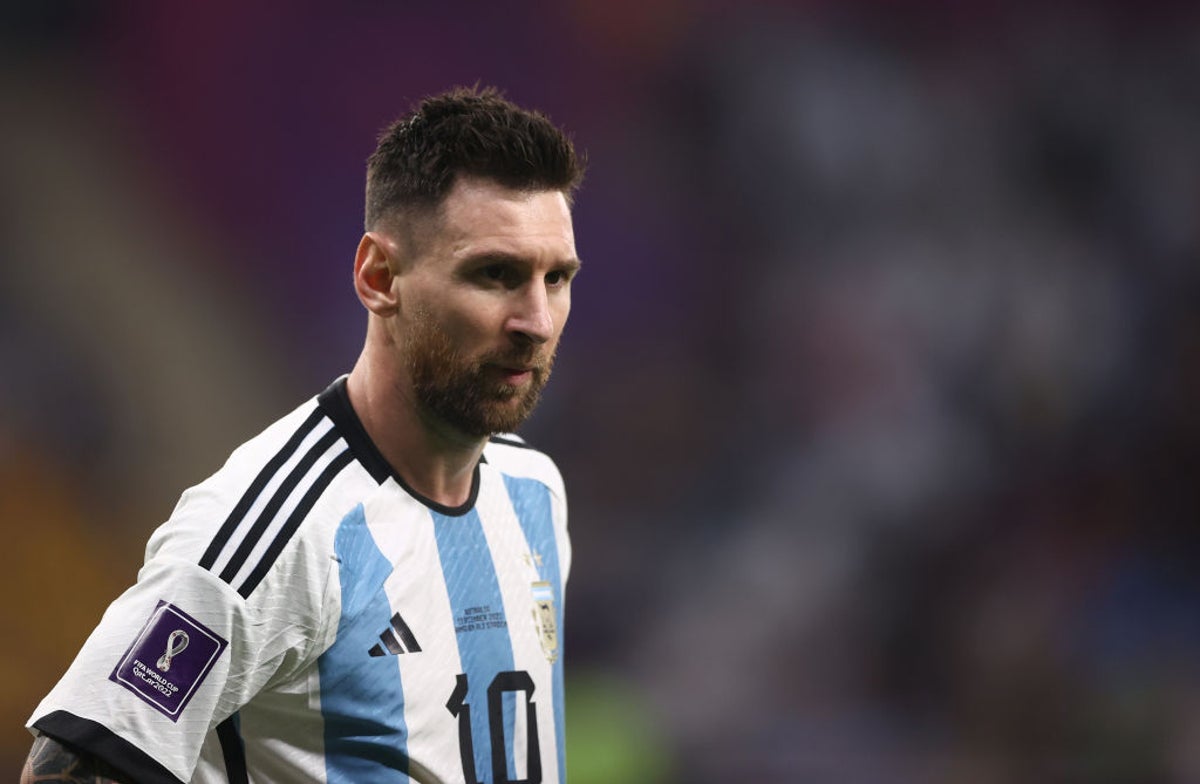
In the Dutch preparations for Friday night, many of the tactical plans have naturally focused on Lionel Messi but that has taken on a slightly absurd air. It is one that is unique to this World Cup. If Louis van Gaal and his players stepped out onto the grass and craned their necks, they would be able to see the figure that so commands their attention is going through the same preparation.
The Argentina squad are training a mere 200 metres from the Netherlands, on the same manicured pitches, in the same University of Qatar base.
It is a situation you wouldn’t see at another World Cup, due to the distinctive geography, but it is far from the first occasion the tournament has brought them together. Friday’s quarter-final at Lusail will actually be the sixth time that Argentina and Netherlands have met in the competition, making it the third-most played World Cup fixture in history. Only Brazil-Sweden and Argentina-Germany have met more, at seven each.
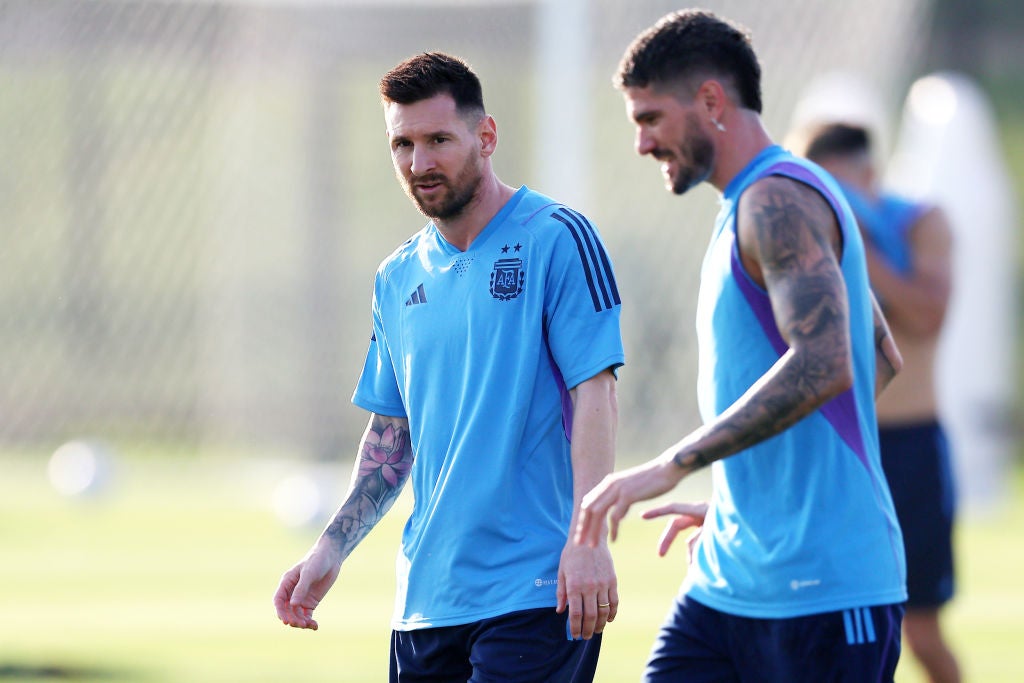
Since both sides are heavyweights, with two outright victories and eight final appearances between them, those meetings have naturally involved a lot of football history, too.
There was Johan Cruyff’s Total Football rendering South American football irrelevant with a 4-0 thumping in 1974. There was Mario Kempes controversially winning Argentina’s first World Cup amid the ticker tape in 1978, and then Dennis Bergkamp’s three touches of genius in 1998.
Dutch defender Jurrien Timber was the first to be asked about the latter this week, simply saying “we all remember” it.
That isn’t quite the case with the most recent two games, but they may be far more relevant, and for reasons beyond the figures involved. Much less gracefully, the 2014 semi-final ended in a shoot-out that also closed Van Gaal’s first great redemption, and saw Javier Mascherano notoriously “tear his anus”. The midfielder was only too willing to tell the media this in the mixed zone afterwards.
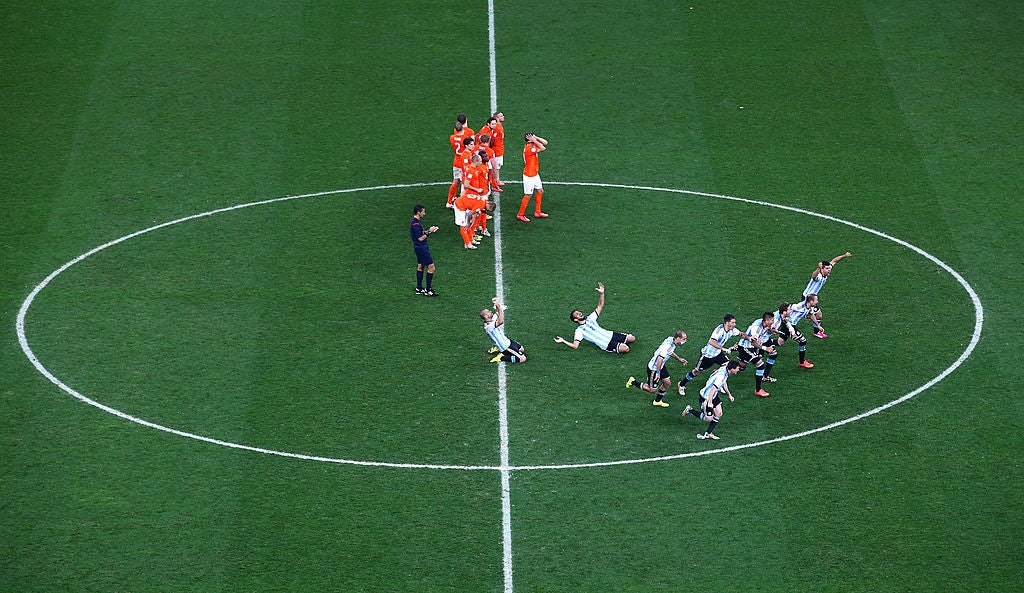
The 2006 group game was also a 0-0 draw, but one that had little at stake given it was only to decide first place in the group. It was still a historic landmark, however, given it was Messi’s very first start in a World Cup.
If his last was to be another fixture against the Netherlands, it would similarly be another landmark with considerable symmetry and symbolism.
It is why a sense of history weighs over this game, just as the history of the fixture itself enriches it.
Messi is a very different player from that which the Dutch faced in 2006, and even in 2014. He has lost much of that sonic energy, but the execution of his talent has been considerably honed. It is perhaps the greatest left foot that has ever kicked a ball, guided by a football super-intelligence that now has 18 years of experience to draw on.
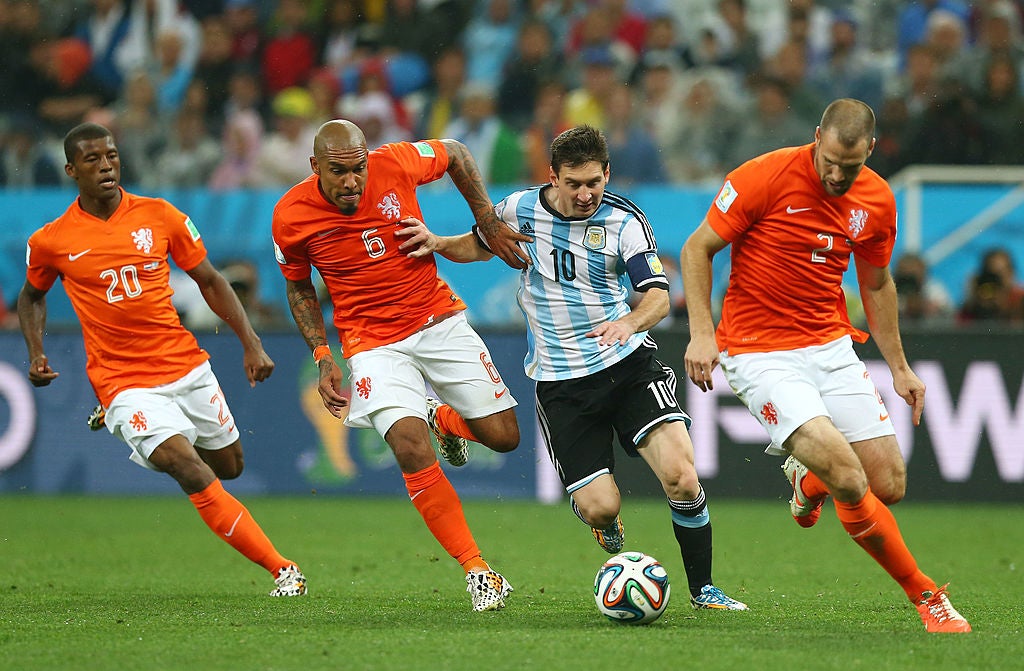
This is what Van Gaal has been telling his players, especially Frenkie de Jong, who will be detailed to trail him. Messi can still undo an entire gameplan in an instant.
“It’s his understanding of the game and how he picks and chooses his moments of when to come to life,” Australian defender Jackson Irvine said of Messi after losing to him in the last 16. “It’s hard to stop… it’s that one little moment, that one half-metre you give him in the box.”
It means that Messi is one of a few disruptors in a match that might otherwise be the most tactical of the tournament.
Lionel Scaloni and his staff have a good idea of how the Dutch will play, after all. It might be more countering and backloaded than previous Van Gaal sides, but it will still be based on dogmatic use of possession within prescribed moves. The criticism is often that this is “sterile” but the veteran coach’s constant insistence is that it is devastating – and beautiful to watch – when the players have enough understanding that they can execute it at speed. Van Gaal and the Dutch squad feel they are getting there.
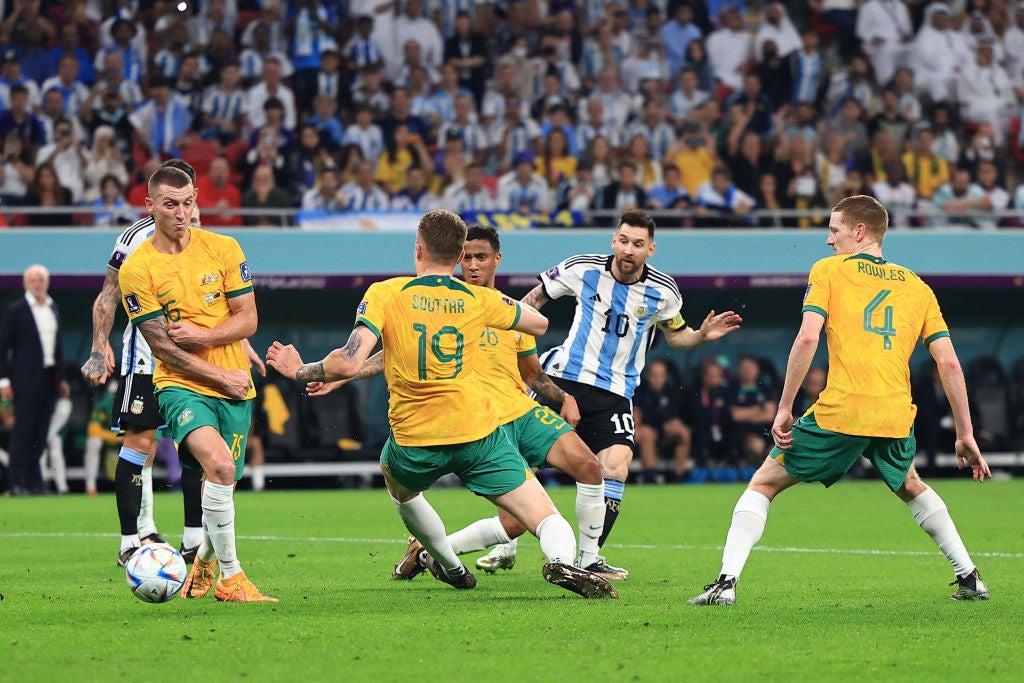
That could be heard in the manager’s gushing about Memphis Depay’s goal against the USA, when he playfully chided journalists for not talking about it in the same way they talked about Brazil.
“They actually play the same football as the Dutch national team,” Van Gaal began. “They play from a compact defence and switch very quickly.
“The strange thing is that I then read in the media – from my friends! – that it was sparkling football, while we also did that. We also scored that way. The goal was much nicer: that was a team goal. That rises above everything.
“That is the best moment of this World Cup – 10 times overplayed at high speed, it was really a super goal.”
This is Van Gaal’s vision of football: clean and clinical. He has got the Dutch players believing that, if they can continue to recreate that, they will be unbeatable.
“They have good players, it’s true,” Timber said. “But tactics are also important.”
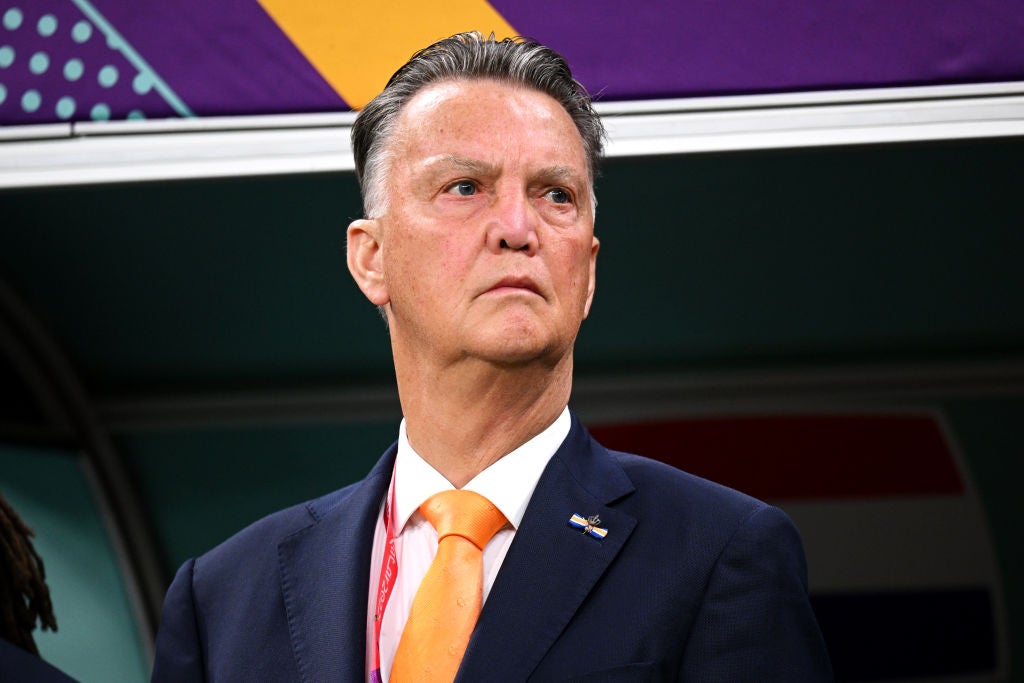
Argentina also like to have the ball but their tactics aren't so advanced. They don’t have the same tactical structure. That can be seen in the improvised way they attack, without the same planned movements. It could also be heard in Alexis Mac Allister’s surprisingly frank statement when asked about playing with Messi.
“It’s a source of pride for me to be beside him, trying to give him the ball, to make sure that the ball goes through him because, if he gets it, everything is much easier.”
This is generally Argentina’s tactical solution to problems. It is entirely predictable, but then Messi brings chaos. Even when you predict what he will do, as Australia did, there is sometimes little you can do about it.
It is not the only element of chaos. There is also the “great atmosphere generated by Argentine supporters”, that Nathan Ake made a point of mentioning, and that makes every match like a home game. It energises their play, adds an intensity. That amplifies a dogged momentum that has developed through this World Cup, much like in 2014.
It might even suit Argentina to play the better teams, where they can dig in and make a game a battle, rather than those where they are expected to take the initiative.
The Netherlands nevertheless believe that they are well set up to win this game, and can claim it on individual battles that add up to victory. They feel Cody Gakpo and Memphis can do huge damage to Nicolas Otamendi and Cristian Romero unless Argentina quickly get into a deep block.
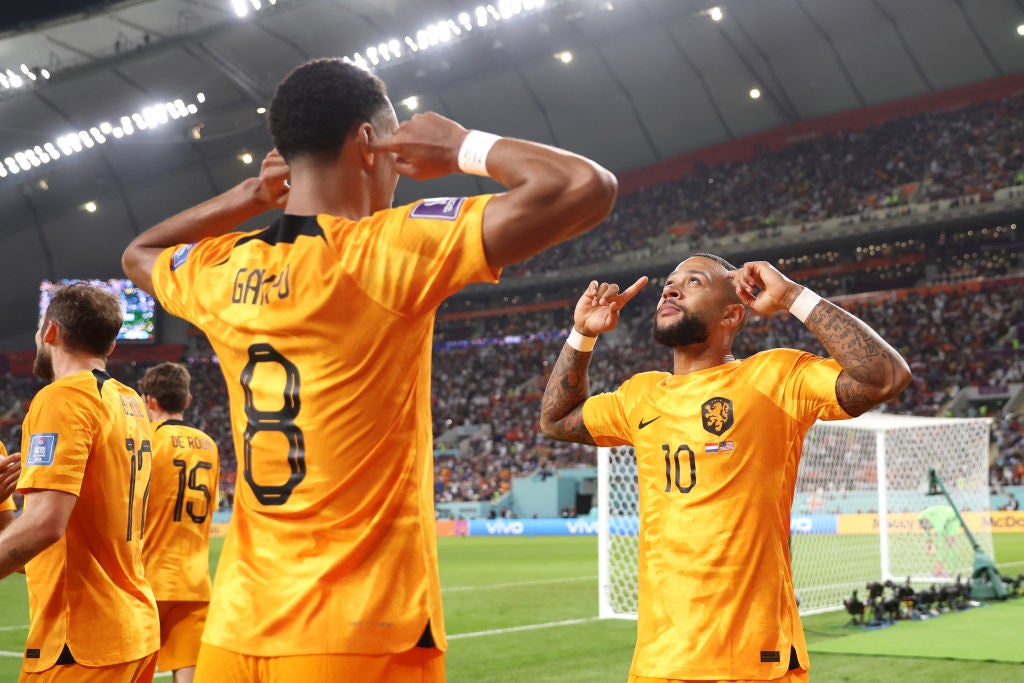
This is partly why Scaloni is still deciding on his starting XI. One decision weighs heaviest. That is whether to start Angel Di Maria. He is back fit but Scaloni knows it is a huge risk. Angel Correa has been tried there in training. Lautaro Martinez may yet return. The Internazionale forward has had a bad tournament, clearly off form and low in confidence, just like Gonzalo Higuain in 2014. It was at this stage in that tournament, though, that Higuain got his only goal – the winner against Belgium. Scaloni believes that kind of trust can go a long way.
Di Maria, in another little piece of symmetry, was similarly injured for that semi-final in 2014. Van Gaal made his own reference to that match this week.
“Argentina is of course the country that eliminated us last time via penalties. We still have a score to settle.”
It’s well set up. By Saturday morning, one of the pitches at the University of Qatar will be empty.







